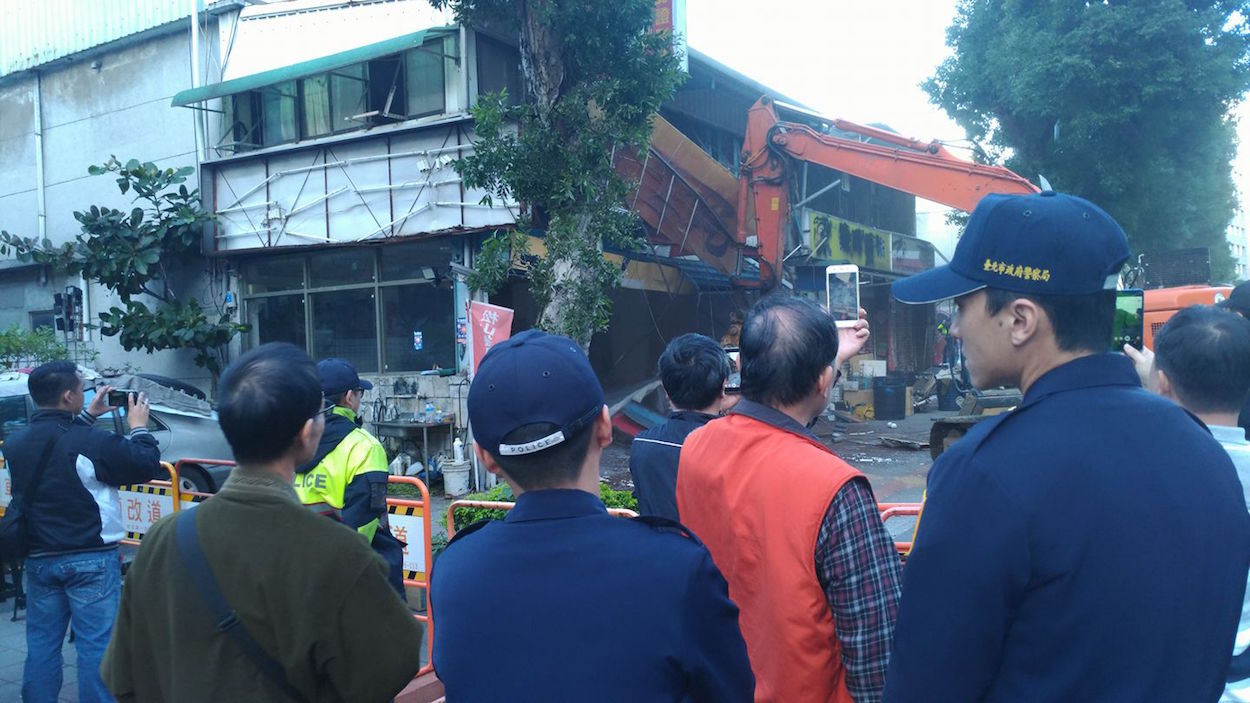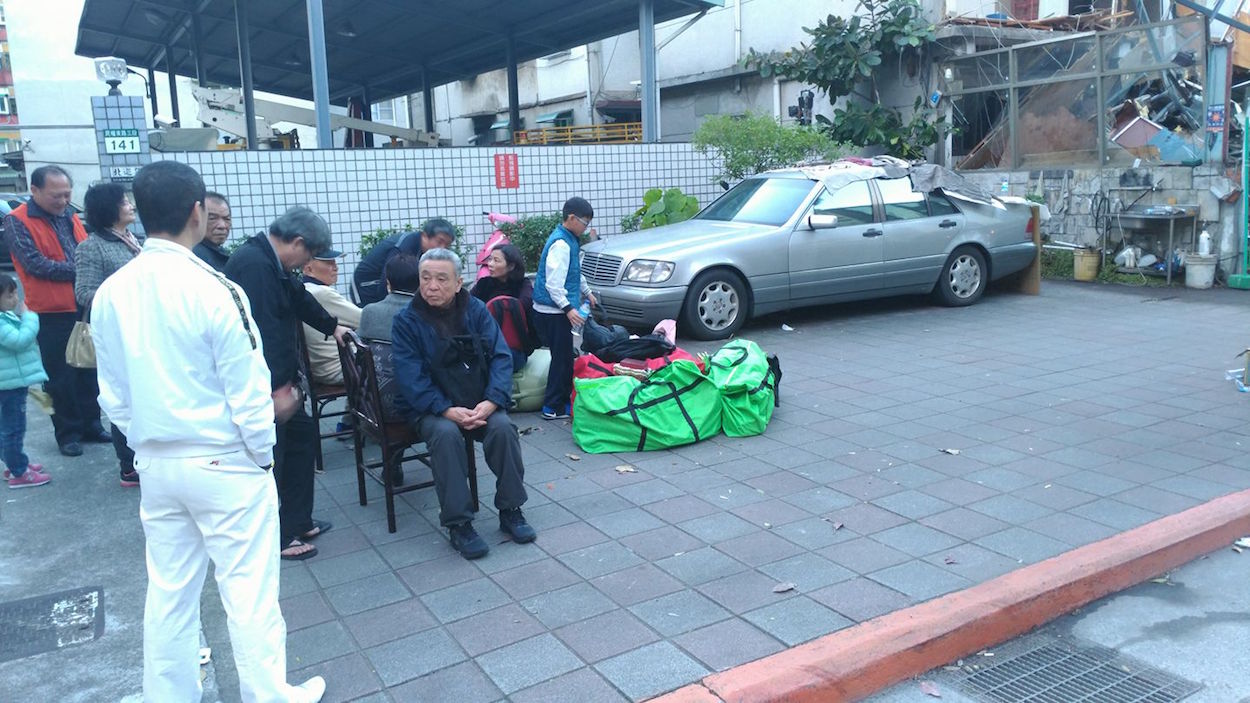by Brian Hioe
語言:
English
Photo Credit: FTV
THE DEMOLITION last week of the home of Guo Tai-Song (郭泰松), the head of the Songshan Airport Forced Eviction Self-Help Organization, has raised questions for some. However, despite the demolition occurring in the middle of winter, as compared to other cases of forced residential eviction cases in urban areas, the case has received less attention from Taiwanese activists.
Notably, Guo’s home was demolished by the Ministry of National Defense, which claimed that Guo’s home was on government property and that Guo was illegally inhabiting the building. Nevertheless, Guo claims that he bought the property fairly and that he is the rightful owner of the property.
Guo and his wife attempted to prevent the eviction physically and had to be forcibly dragged away by police before the eviction took place. Though the Ministry of Defense claims that the Guo family was given two eviction notices in the weeks before the demolition, the Guo family claims that they were, in fact, only given fifteen minutes to clear out their belongings.
 Photo credit: Wang Yi-Kai/Facebook
Photo credit: Wang Yi-Kai/Facebook
It is unknown whether this was indeed the case. While police loaded some of the belongings of the Guo family into boxes and moved them out of the building, eyewitnesses such as former Sunflower Movement activist and current candidate for Taipei city council Wang Yi-Kai (王奕凱) also reported on social media that the demolition first took place before police asked the Guo family for an address to send relevant legal documents, in this way adding insult to injury. The Guo family has stated that they see themselves as lucky that their son happened to be at school when the eviction took place, but have stated that they have few other options to move.
What is clear from the legal history of the property is that Guo’s home was originally government property, but passed through many different hands, and saw many different usages, including as a storefront. The Guo family had lived in the building for twenty years.
Murky property ownership practices are rather commonplace in Taiwan, with the legal status of many properties existing in a legal grey zone, or in which properties are “sold” to unsuspecting homeowners by people who do not actually own these properties. Likewise, the relevant authorities in many cases suddenly decide residences to have been be illegal despite allowing them stand for a number of years, sometimes leading the residents of these buildings to believe that their residences are legal. It is not impossible that this is what may have befallen the Guo family, although as with other eviction cases, some may accuse the Guo family of simply raising a fuss in order to try and secure a better settlement from the government.
Nonetheless, forced evictions by the Ministry of National Defense in the Songshan Airport area have demonstrated against by local residents for some time. As a result, given Guo Tai-Song’s status as head of the Songshan Airport Forced Eviction Self-Help Organization, some wonder whether this could be political retribution against Guo. Corruption is far from unknown in the ROC military and police, particularly with cases of police sometimes cooperating with unscrupulous land developers to evict residents of valuable properties so that they may be redeveloped.
 Photo credit: Wang Yi-Kai/Facebook
Photo credit: Wang Yi-Kai/Facebook
The truth remains to be seen. However, the case points to a broader range of ongoing forced eviction cases across Taiwan. In Taipei alone, this includes the demolition of a man’s home on Chan’An West Road in March last year, as well as the eviction of Daguan Community. In 2017, forced eviction cases included protests against forced urban redevelopment include protests in Taichung against the demolition of historic sites, protests in Kaohsiung against the forced eviction of the elderly residents of a housing complex adjacent to a fruit and vegetable market in Sanmin District in northern Kaohsiung, protests in Kaohsiung against the eviction of residents of Dagouding street, whose homes were slated to be demolished to make way for a drainage canal, and protests in Tainan regarding the demolition of historic farmland.
It is feared that such cases will continue, particularly after the Tsai administration’s Forward-Looking Infrastructure Bill preserved provisions for forced evictions for the sake of development. However, it remains of whether a wave of evictions leads to protests on the scale of past protests against evictions and demolitions along the lines of protests in Dapu, Miaoli, the Shilin Wang family home, or Huaguang Community in past years.

